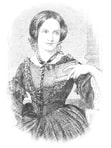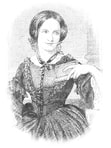anne bradstreet
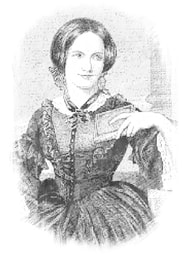
Anne Bradstreet (March 8, 1612 – September 16, 1672) was the most prominent of early English poets of North America and first writer in England's North American colonies to be published. She is the first Puritan figure in American Literature and notable for her large corpus of poetry, as well as personal writings published posthumously. She became the first published poet in America when her brother-in-law showed a manuscript of her work to an English publisher.On July 10, 1666, their North Andover family home burned (see "Works" below) in a fire that left the Bradstreets homeless and with few personal belongings. By then, Anne's health was slowly failing. She suffered from tuberculosis and had to deal with the loss of cherished relatives. But her will remained strong and as a reflection of her religious devotion and knowledge of the Bible, she found peace in the firm belief that her daughter-in-law Mercy and her grandchildren were in heaven.
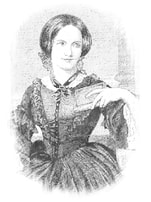 Anne Bradstreet
Anne Bradstreet
“…God doth not afflict willingly, nor take delight in grieving the children of men: he hath no benefit by my adversity nor is he the better for my prosperity; but he doth it for my advantage, and that I may be a gainer by it. And if he knows that weakness and a frail body is the best to make me a vessel fit for his use, why should I not bare it, not only willingly but joyfully? The Lord knows I dare not desire that health that sometimes I have had, least my heart should be drawn from him, and set upon the world.”
--Anne Bradstreet, Letter: To My Dear Children
--Anne Bradstreet, Letter: To My Dear Children
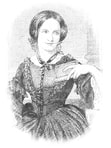 Anne Bradstreet
Anne Bradstreet
“It is reported of the peacock that priding himself in his gay feathers he ruffles them up; but spying his black feet he soon lets fall his plumes. So he that glories in his gifts and adornings should look upon his corruptions, and that will damp his high thoughts.” -- Anne Bradstreet
 William Edgar Files
William Edgar Files
Indeed, redemptive history is sprinkled with great men and women who struggled at some point with deep discouragement and despair. A well-known example is Martin Luther (1483–1546), who had bouts with depression caused, for example, by contracting the bubonic plague in 1527, or, ironically, by the success of the Reformation and his doubts about his ability to guide it forward. He called such bouts anfechtung, “assaults” that threatened his convictions. Another example is Anne Bradstreet (1612–1672), the remarkable Puritan poet, who admitted to her children that she had traversed serious periods of doubt. “Many times hath Satan troubled me concerning the verity of the Scriptures,” she wrote in a letter she left them after she died. But she remained in the faith.
--William Edgar; Desiring God; The Faith Crisis of Francis Schaeffer 2.4.23
--William Edgar; Desiring God; The Faith Crisis of Francis Schaeffer 2.4.23


